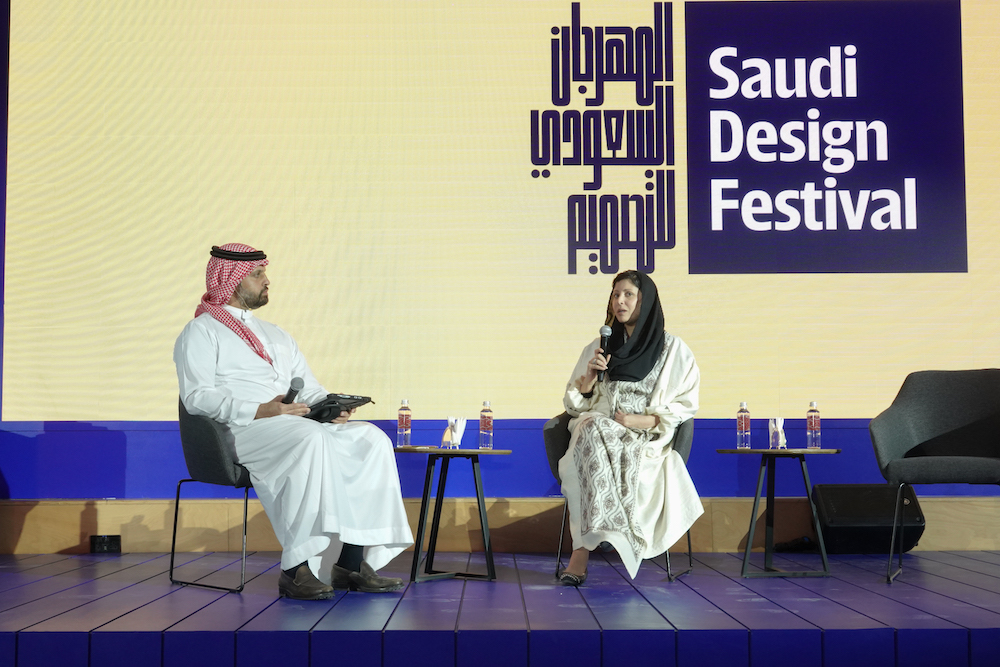RIYADH: In 1727, the foundation stones of the First Saudi State were placed by Imam Mohammed ibn Saud. Centuries later, under the leadership of King Salman and Crown Prince Mohammed bin Salman, the Kingdom is currently undergoing the most significant cultural renaissance in the modern Arab world.
Founding Day was first officially observed in 2022 and has become a great source of pride for Saudi Arabia’s citizens. With the holiday just around the corner, Saudi Arabia’s creatives took time to acknowledge the importance of commemorating such a momentous day.
For Ghofran Alsaeed, an interior designer and CEO of architect and design studio GWDESIGN, the annual celebration is a time to reflect on Saudi Arabia’s establishment and its significance in history.
“It allows us to honor the sacrifices and contributions of the nation’s founders, celebrate progress and achievements of Saudi Arabia, and reaffirm our commitment to the country’s development and prosperity. It’s also an opportunity to reflect on the values and principles that guide the nation and unite its people,” she told Arab News.
Last year, Alsaeed celebrated by participating in community events, and spending time with her family making green rice and dressing in the national color. She plans to continue the tradition this year by attending official ceremonies and cultural events.
INNUMBER
* 1727 Foundation stones of First Saudi State laid by Imam Mohammed ibn Saud.
“As a Saudi, I feel immense pride and gratitude witnessing the growth and prosperity of the Kingdom since its establishment centuries ago. It’s a testament to the vision, hard work, and dedication of our leaders and people,” said Alsaeed.
“However, it also reminds us of our responsibility to continue contributing to the progress of our beloved country,” she added.
The Kingdom has been celebrating its traditions and heritage with events including Handicraft Week and annual date festivals throughout the country. Other events held are the equestrian Saudi Cup and national holidays including Flag Day on March 11 and Saudi National Day on Sept. 23.
Noha A. Raheem, a calligraphy artist and interior designer, believes these annual celebrations play a vital role in reminding citizens of their shared history.
“This fosters a sense of national pride, unity, and belonging, ultimately strengthening social cohesion and solidarity across the country,” she told Arab News.
As a creative, she feels immense pride in seeing the remarkable growth and prosperity achieved over the years on the economic and cultural fronts. This includes the Kingdom’s advancements in design, education, healthcare, infrastructure and technology, to becoming a global player in various industries.
“Commemorating founding day is important as it allows us to acknowledge and appreciate the struggles, sacrifices, and achievements,” she said.

Under the leadership of King Salman and Crown Prince Mohammed bin Salman, the Kingdom is currently undergoing the largest cultural renaissance in the modern Arab world. (AN photo)
The founding day has a special place in designer Amar Alamdar’s heart because of his familial contributions in the third Saudi state. He shared that his grandfather, Khalid Mustafa Alamdar, served in King Abdulaziz’s first Saudi Army due to his knowledge on artillery.
“Founding Day is to bring the people together to create a foundation — unite them. Any Arab or Muslim living there at the time became Saudi Arabian,” he said.
His grandfather made sure that all his children, Alamdar’s uncles, also served in the army, carrying on the legacy of their family.
Alamdar said he wants to encourage his peers to create artwork that incorporates Saudi Arabia’s historical roots. “What if they were celebrating this day at the time? What would our elders have done?”
Alamdar plans to put on an art exhibition in honor of the day that started it all, featuring 22 Saudi artists.

Entrepreneur and designer Princess Nourah AlFaisal highlights the efforts of her research-based design consulting firm Adhlal. (AN photo)
“We have an obligation to platform the country’s rich history that dates back to the 18th century. We have a unique opportunity to show our heritage and our unique history that was sometimes even doubted.”
“God bless the times that we are living in now under King Salman and the crown prince in our movement towards technology and adaptation to the future (which) is a phenomenon,” Alamdar said.
“We used to run, then speed up, and now we have to learn to fly. We need this technology to empower ourselves as much as we can,” he added.
In addition, Alamdar advised young people to open up their arms and embrace people of every nation.




























